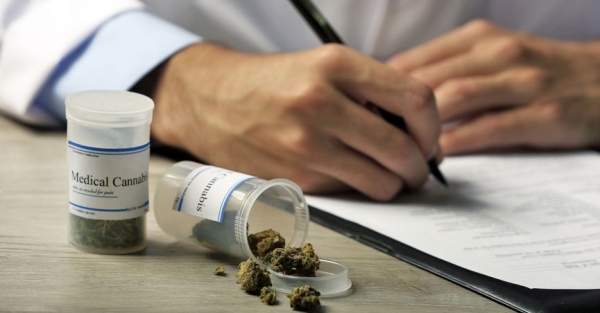
Lexington, KY—(ENEWSPF)—April 5, 2018
By: Paul Armentano, NORML Deputy Director
The enactment of statewide marijuana legalization laws is associated with a reduction in the number of opioids prescribed and filled, according to a pair of studies published online Monday in the journal JAMA Internal Medicine.
In the first study, investigators from the University of Kentucky and Emory University assessed the relationship between medical and adult-use marijuana laws and opioid prescribing patterns among Medicaid enrollees nationwide. Enrollees included all Medicaid fee-for-service and managed care enrollees – a high-risk population for chronic pain, opioid use disorder, and opioid overdose.
Researchers reported that the enactment of both medicalization and adult-use laws were both associated with reductions in opioid prescribing rates, with broader legalization policies associated with the greatest rates of decline.
“State implementation of medical marijuana laws was associated with a 5.88 percent lower rate of opioid prescribing. Moreover, the implementation of adult-use marijuana laws, which all occurred in states with existing medical marijuana laws, was associated with a 6.38 percent lower rate of opioid prescribing,” they concluded. “[T]he further reductions in opioid prescribing associated with the newly implemented adult-use marijuana laws suggest that there were individuals beyond the reach of medical marijuana laws who may also benefit from using marijuana in lieu of opioids. Our finding that the lower opioid prescribing rates associated with adult-use marijuana laws were pronounced in Schedule II opioids further suggest that reaching these individuals may have greater potential to reduce the adverse consequences, such as opioid use disorder and overdose.”
In the second study, University of Georgia researchers evaluated the association between the enactment of medical cannabis access laws and opioid prescribing trends among those eligible for Medicare Part D prescription drug coverage. Researchers reported that medicalization, and specifically the establishment of brick-and-mortar cannabis dispensing facilities, correlated with significantly reduced opioid prescription drug use.
“This longitudinal analysis of Medicare Part D found that prescriptions filled for all opioids decreased by 2.11 million daily doses per year from an average of 23.08 million daily doses per year when a state instituted any medical cannabis law. Prescriptions for all opioids decreased by 3.742 million daily doses per year when medical cannabis dispensaries opened,” they concluded. “Combined with previously published studies suggesting cannabis laws are associated with lower opioid mortality, these findings further strengthen arguments in favor of considering medical applications of cannabis as one tool in the policy arsenal that can be used to diminish the harm of prescription opioids.”
The studies’ findings are consistent with those of numerous prior papers concluding that legal cannabis access is associated with decreases in opioid use, abuse, hospitalizations, and mortality.
The studies appear in the JAMA Internal Medicine.
Full text of “Association of Medical and Adult-Use Marijuana Laws with Opioid Prescribing for Medicaid enrollees” can be found here,
Full text of “Association Between US State Medical Cannabis Laws and Opioid Prescribing in the Medicare Part D Population” can be found here.
Source: www.norml.org








